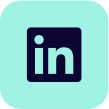How to prepare for a job interview
Interview tips
Have you been invited to a job interview? Congratulations! This is an important step which you should prepare well to get the most out of it. The better prepared you are, the more relaxed you will be throughout the interview and whole hiring process.
In this article, we will discuss what you should focus on during your preparation to improve your chances of getting the job you desire.
Getting ready for the interview
When arranging your meeting for the job interview, make sure you know when and what time you should arrive, what is the location, what is the name of the person you are meeting and their job title in the company. Also, ask the recruiter or your consultant what is the expected duration of the interview, as it is not appropriate to ask this question during the interview itself. Arrive on time, ideally five minutes ahead.
The day prior to the meeting, read the job description of the position you have applied for again. You can print out the advertisement and add any questions you want the recruiter to answer, for example:
- Is this a newly created position?
- Who does this position report to?
- What does achieving success in this position look like?
Information about the organisation
Continue your preparation by finding out information about the company. Use the company's website, their social networks, for example LinkedIn. You should know at least some basic information about the company, especially its focus, what sector it operates in, what its core business is, what its origins are - where it was founded, and what its global presence is.
You will also make a good impression if you find out more about their main projects or recent activities - you can research on the internet and in the media, in addition to the sources above.
Information about the people you will meet
The name of the person who will interview you is now known to you. Check LinkedIn to see what the responsibilities of this person are, what topics they are interested in and what posts they share and comment on. You can also send a LinkedIn connection request.
You can also find out about other team members on LinkedIn, the company website, or social media, so you can try searching for them too and see what they do specifically at the company. If you know someone who works there too, try asking them what the company culture is like. When this topic comes up during the interview, you can ask again about what you are interested in, for example:
- How big is the team I will eventually be part of?
- What is the structure or hierarchy of the team?
Online interview or in person?
Will your meeting be by phone, online or in person? Prepare adequately for the type of interview, check your Wi-Fi and/or phone signal, make sure your battery is charged, make sure you have the interview quiet and know who will be initiating the call.
Make sure you have all your documents available, such as your CV, cover letter, etc. You may find them useful.
How to dress for a job interview
A good first impression is important in a job interview, whether it's a video interview or an in-person interview. What to wear? Your outfit should be professional and appropriate for the role you apply for. The style of dressing for a job interview has changed a lot in the last decade and is much more relaxed. For majority of skilled roles, a tie is no longer always a necessity for gentlemen or a suit for ladies, but your dress and appearance should appear neat and credible. Jeans aren't wrong either, but in that case it's better to choose darker colours, a slimmer fit and a matching smart shirt and jacket.
Interview process and typical job interview questions
At the beginning of the interview, the recruiter will introduce the company and outline the course of your meeting. Next, he or she may ask you to introduce and describe yourself. Here's how to answer this question, but keep it brief - focus on professional information, mention your key experience and skills related to the position you are applying for. You can also include what you expect from the position you are applying for and how it appealed to you.
Many questions come up a lot in interviews, so it's a good idea to be prepared. Why did you apply for this position? Why should we choose you? Can you describe a situation where something didn't work out for you? Think about how you would respond to such questions. You can also find guidance on how to answer some common interview questions in our other articles.
How to perform in a job interview
Always try to start the interview with a smile. This will create a relaxed and pleasant atmosphere that encourages further conversation. Maintain eye contact, even during the online interview. When answering questions, stick to the topic, don't stray from it, and answer specifically and with sufficient clarity. Cite your achievements and results to convince the recruiter that you are the right candidate for the job, but don't overdo it so it doesn't come across as excessive bragging.
It's good if the interview is more like a friendly conversation rather than an interrogation, but it's also important not to overreact and to wait until the recruiter has finished their question before you start answering.
If the interview is online, be aware of potential delays caused by technology.
The terms and conditions of employment will also often come up in a job interview. Be transparent and realistic about your current salary and salary expectations. Remember that the amount you quote should be commensurate with your experience and reflect the job market in the location. If you're not sure, check the salary in our calculator, for example.
If you have arranged the interview through a recruitment company, the company already knows your salary requirements, so you should not increase them beyond the original agreement during the meeting itself to avoid reducing your chances of getting the position. Also consider other benefits provided on this position, such as extra days of holidays, flexibility, bonuses, allowances, etc.
What to ask in a job interview
At the end of the interview, you will have a space for your questions. If you have asked questions during the interview and have no further questions, that's fine. But keep in mind that a job interview is a two-way conversation and the recruiter expects you to be interested and is ready to answer your questions. Use this opportunity to ask questions to show your potential employer that you are genuinely interested and great fit for the company.
What other questions can you ask?
- What are the training opportunities in your company?
- What is the usual onboarding process?
- Can you please describe closer your company culture?
- What will be the next steps in the selection process?
Ask when you will receive feedback and when the second round of interviews will take place or when the company plans to close the selection process.
Second round of the interview
If you are successful, you will probably be invited to the second round where you can meet your supervisor if you have not already met them. The second round of interviews is likely to be different from the first, may involve more people present, a practical test or some sort of task or presentation. Make sure you have all the information you need before the second round so you can do a proper preparation.
It doesn't happen often, but if you were convincing during the interview, you may get a job offer on the spot. If you're confident and know all the terms of that offer, you might as well accept it. However, you'll probably want some time to think about it so you can compare it with other opportunities you may have on the table. In that case, ask for time and agree by when you will tell the company your final decision.
What to do after the interview?
The job interview doesn't end when you walk out the door. If you are working with an agency, call your consultant after the interview and tell them how the interview went. If he or she knows what your impression of the interview was, he or she will be better able to assess the outcome.
If you haven't already connected with your company's recruiter on LinkedIn, do it now. You can also send him a short message thanking him for a pleasant interview and stating that you look forward to feedback and follow-up.
Remember, even if you feel good about the interview, you shouldn't slack off in your job search. You should still attend all interviews that are arranged and, don't rest on your laurels until you have an official offer.
We wish you the best of luck in your search for your next job.



